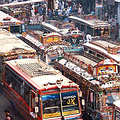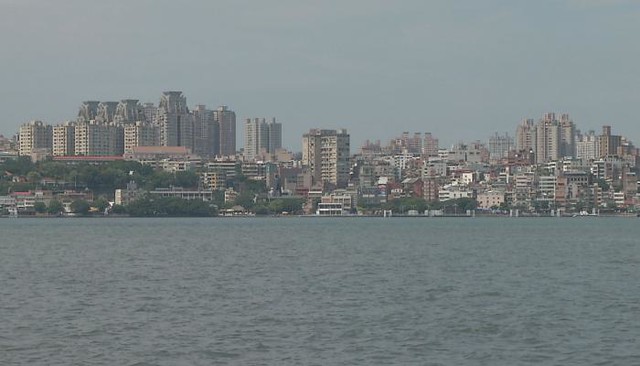 看守世界研究中心(Worldwatch Institute)10日於其世界現況年度報告中指出,現今都市化的腳步過快且未經詳細規劃,對於人類健康與生態環境已逐漸構成威脅。時至2008年,地球半數以上的人口將棲身都市叢林之中,可謂人類在歷史中第一次被視為都市生物。
看守世界研究中心(Worldwatch Institute)10日於其世界現況年度報告中指出,現今都市化的腳步過快且未經詳細規劃,對於人類健康與生態環境已逐漸構成威脅。時至2008年,地球半數以上的人口將棲身都市叢林之中,可謂人類在歷史中第一次被視為都市生物。
據美國研究報告顯示,未來人類與地球的命運,將取決於人們是否有能力妥善應對快速都市化所帶來的社會與環境之挑戰,特別是都市中的貧窮問題。看守世界中心能源暨氣候執行長索因(Janet Sawin)亦表示:「儘管一些城市已抛磚引玉,不過所有城市都必須為世上龐大的溫室氣體排放量負全責。」
目前,全世界每年有大約6000萬人口加入城市居民的行列。混亂的沒有規劃的城市化進程在許多國家造成社會、生態和經濟的不穩定局面,同時也對城市居民健康狀況和環境造成巨大壓力。該書指出,在30億的城市居民中,其中有高達1億人生活在缺少乾淨飲水、沒有基本衛生條件以及沒有堅實牢固的房子的環境中。據估計,每年死於缺乏乾淨飲水和衛生設施的城市居民高達160萬人。
此份報告呼籲城市與非政府組織應攜手合作,一同分享解決都市問題的經驗,並且提供決策者充分的資訊,確保都市窮人也有參與發展決策的權利。
Rapid and chaotic urbanization is taking a massive toll on human health and the environment, the Worldwatch Institute said today in its annual report on the state of the world. In 2008, half of the Earth’s population will live in cities, the first time in history that humans can be considered an urban species.
How the world tackles the social and environmental challenges of urbanization, in particular the needs of the urban poor, will determine the future of humanity and the fate of the planet, according to the report by the U.S. research group. "Cities are directly or indirectly responsible for the vast amount of the world's greenhouse gas emissions," said Janet Sawin, director of the Worldwatch Institute Institute's energy and climate change program, "But many cities are now leading the way."
The report calls for a broad effort on the part of cities and nongovernmental organizations to gather and share information on local solutions to urban problems and for policymakers to ensure the urban poor have a voice in development decisions.
全文及圖片詳見http://www.ens-newswire.com/ens/jan2007/2007-01-10-10.asp
【其他參考資料】美國之音報導







